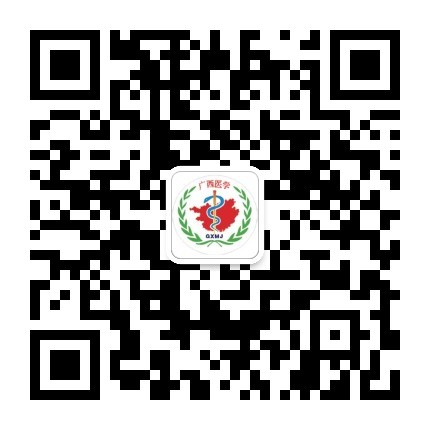目的基于网络药理学及分子对接技术探讨连理汤治疗溃疡性结肠炎(UC)的作用机制。方法通过中药系统药理学数据库与分析平台检索连理汤6味中药的活性化学成分及其作用靶点;通过OMIM、DrugBank、TTD、DISEASES、GeneCards等数据库获取UC的相关靶点;对连理汤活性化学成分的作用靶点和UC的相关靶点取交集;使用Cytoscape 3.8.2软件构建连理汤治疗UC的“中药-活性成分-靶点”网络以筛选主要活性化学成分。通过STRING数据库及Cytoscape 3.8.2软件构建蛋白-蛋白相互作用(PPI)网络,筛选核心靶点。应用DAVID数据库对交集靶点进行基因本体论(GO)功能富集分析和京都基因与基因组百科全书(KEGG)通路富集分析。使用AutoDock软件对主要活性化学成分和核心靶点进行分子对接。结果共获得连理汤活性化学成分110个,作用靶点229个,UC相关靶点1 538个,取交集后获得134个连理汤治疗UC的相关靶点。通过构建“中药-活性成分-靶点”获得槲皮素、山柰酚、β-谷甾醇、异鼠李素、芒柄花黄素等11个主要活性化学成分,通过构建PPI网络筛选出丝氨酸/苏氨酸蛋白激酶1(AKT1)、肿瘤坏死因子(TNF)、白细胞介素(IL)-6、肿瘤抑癌蛋白p53(TP53)、IL-1B、原癌基因C-Jun(JUN)等10个核心靶点。GO功能富集分析结果显示,交集靶点涉及的生物过程主要与凋亡过程、炎症反应、信号转导等有关,涉及的细胞组分与细胞核、胞质溶胶、蛋白质复合物、核质等有关;涉及的分子功能与酶结合、转录因子结合、蛋白质结合、细胞因子活性等有关。KEGG通路富集分析结果显示,交集靶点主要富集在TNF信号通路、磷脂酰肌醇3-激酶/AKT信号通路、缺氧信号因子1信号通路、Toll样受体信号通路等。分子对接结果表明,槲皮素、山柰酚、异鼠李素、芒柄花黄素、β-谷甾醇等与核心靶点AKT1、TNF、IL-6、TP53、IL-1B、JUN等表现出较强的亲和力。结论连理汤治疗UC具有多成分、多靶点、多通路协同作用的特点,连理汤的多个主要活性化学成分可能通过AKT1、TNF、IL-6、TP53、IL-1B、JUN等多个靶点作用于多个信号通路来发挥抗炎、免疫调节、维持肠黏膜免疫屏障、调节肠道菌群等作用,从而达到治疗UC的目的。
当前位置:首页 / 基于网络药理学和分子对接技术分析连理汤治疗溃疡性结肠炎的分子机制
论著.生物信息技术
|
更新时间:2023-11-14
|
基于网络药理学和分子对接技术分析连理汤治疗溃疡性结肠炎的分子机制
Mechanism of Lianli Decoction for the treatment of ulcerative colitis: an analysis based on network pharmacology and molecular docking technique
广西医学 2023第45卷17期 页码:2111-2120+2152
作者机构:邓亚胜,硕士,住院医师,研究方向:特色方剂的配伍与成药化研究。
基金信息:全国高校黄大年式教师团队——中西医基础课程教师团队项目(教育部教师函〔2022〕2号);广西名中医传承工作室建设项目(桂中医药科教发〔2021〕6号);广西一流学科建设项目(桂教科研〔2022〕1号);广西中医药多学科交叉创新团队项目(GZKJ2302)
- 中文简介
- 英文简介
- 参考文献
ObjectiveTo explore the mechanism of Lianli Decoction for the treatment of ulcerative colitis (UC) based on the network pharmacology and molecular docking technique. MethodsThe active chemical components and their effect targets of six Traditional Chinese Medicines in Lianli Decoction were retrieved through the Traditional Chinese Medicine Systems Pharmacology Database and Analysis Platform. Through the databases of OMIM, DrugBank, TTD, DISEASES, GeneCards, etc.,the related targets of UC were obtained; furthermore, the intersection between effect targets of active chemical components in Lianli Decoction and targets related to UC was obtained. By Cytoscape 3.8.2 software, a "Traditional Chinese Medicine-active components-targets" network of Lianli Decoction for treating UC was conducted to screen the main active chemical components. The protein-protein interaction (PPI) network was constructed by the STRING database and Cytoscape 3.8.2 software to screen the core targets. The Gene Ontology (GO) functional enrichment analysis and Kyoto Encyclopedia of Genes and Genomes (KEGG) pathway enrichment analysis were performed on intersection targets by using the DAVID database. The molecular docking was performed on the main active chemical components and core targets by using the AutoDock software. ResultsA total of 110 active chemical components from Lianli Decoction, 229 effect targets, and 1538 targets related to UC were obtained, and 134 targets related to Lianli Decoction for the treatment of UC were obtained after taking intersection. A total of 11 main active chemical components, including quercetin, kaempferol, β-sitosterol, isorhamnetin, and mangosteen, etc.,were obtained through the construction of the "Traditional Chinese Medicine-active components-targets", and 10 core targets, involving serine/threonine protein kinase 1 (AKT1), tumour necrosis factor (TNF), interleukin (IL)-6, tumour suppressor protein p53 (TP53), IL-1B, and proto-oncogene C-Jun (JUN), etc., were screened out by constructing the PPI network. The results of GO functional enrichment analysis revealed that the biological processes involved in the intersection targets were mainly related to apoptosis process, inflammatory response, and signal transduction, etc., the cellular compositions involved in intersection targets mainly related to nuclei, cytosol, protein complexes, and nucleoplasm, etc., and molecular functions involved in intersection targets mainly related to enzyme binding, transcription factor binding, protein binding, cytokine activity, etc. The results of KEGG pathway enrichment analysis indicated that intersection targets were mainly enriched in TNF signaling pathway, phosphatidylinositol 3-kinase (PI3K)/AKT signaling pathway, hypoxia-inducible factor 1 signaling pathway, and Toll-like receptor signaling pathway, etc. The results of molecule docking implied that quercetin, kaempferol, isorhamnetin, mangosteen, β-sitosterol, etc., interpreted strong affinity to the core targets in terms of AKT1, TNF, IL-6, TP53, IL-1B, and JUN. ConclusionLianli Decoction has the characteristics of multi-component, multi-target, and multi-pathway synergistic effect for the treatment of UC. Several main active chemical components of Lianli Decoction may play a role in anti-inflammation, immune regulation, maintenance of intestinal mucosal immune barrier, and regulation of intestinal flora, etc., so as to achieve the treatment of UC by acting on multiple signaling pathways through multiple targets with respect to AKT1, TNF, IL-6, TP53, IL-1B, and JUN, etc.
-
无




 注册
注册 忘记密码
忘记密码 忘记用户名
忘记用户名 专家账号密码找回
专家账号密码找回 下载
下载 收藏
收藏
